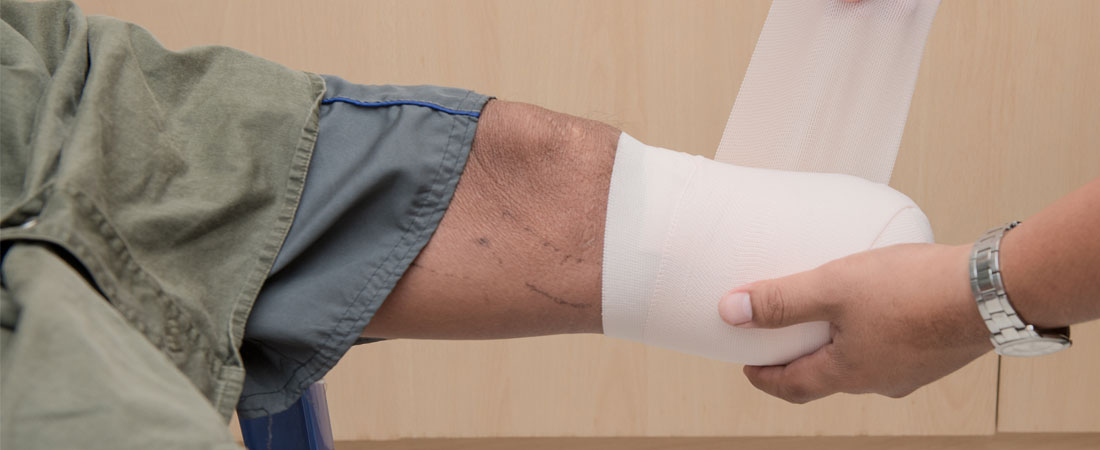Atherectomies to treat peripheral artery disease are not without risk, and a percentage of patients undergoing this procedure will suffer an amputation of the treated leg. Before undergoing any procedure for PAD, a patient should consult with a board-certified vascular surgeon to ensure that treatment for this disease is necessary and safe. Please consult one of our experienced atherectomy malpractice lawyers if you or a loved one have been injured as a result of this procedure.
What is an Atherectomy?
Atherectomy is described as a minimally invasive treatment for peripheral artery disease, or PAD. PAD affects more than 6 million Americans over the age of 40. The procedure, typically done in an outpatient setting, is performed to open narrow arteries blocked by the buildup of plaque—cholesterol, fatty material, fibrin, and calcium that can build up in the blood vessels, causing them to thicken and harden.
In an atherectomy, a thin catheter is threaded into the blocked blood vessel to restore blood flow. A blade, laser, or rotating device at the end of the catheter cuts away, dissolves, sands away, or breaks up plaque.
Who Performs Atherectomies?
Typically, vascular surgeons, but in some states specialized treatment might not be required. According to one source, ProPublica, even a psychiatrist could theoretically perform an atherectomy in some states. Recently, because of a change in Medicare payments, there have been high volume clinics who have been charged with performing unnecessary atherectomies in order to meet quotas to support their business—a practice well known to atherectomy malpractice lawyers.
How Many Atherectomies are Performed in the United States Annually?
More than 190,000 atherectomies are performed in the U.S. every year, according to research.
 What Are The Risks of Atherectomies?
What Are The Risks of Atherectomies?
Atherectomies pose several serious risks, according to atherectomy malpractice lawyers, including internal hemorrhage, infection, limb amputation, and even death. Many times, patients with PAD do not need any treatment and should not be exposed to the risk associated with this procedure. In addition, this procedure is frequently performed despite the risks, and even though less invasive and far less costly options, such as stenting, are available. In fact, one recent major research commentary describes atherectomy use as a “real problem.”
Another research article reports “higher than expected rates of major amputation for patients undergoing peripheral arterial atherectomy.” Additionally, research suggests that patients who underwent atherectomy were “nearly four times more likely to undergo major amputation than those who underwent stenting.”
Why Are Atherectomies Performed So Often, Despite The Risks and The Demonstrably Poor Outcomes Compared to Other Options?
Simply put, doctors are paid more—a lot more—for performing atherectomies, even though there is little data indicating the outcomes for atherectomy are better than for other treatments, such as stenting.
Medicare and other providers pay a good deal more for atherectomies, which are more expensive than other treatment options. A study of the procedure in one state, Michigan, showed that the “top 10 percent of providers who billed for atherectomy performed over 70 percent of the atherectomies in the state and accounted for almost 85 percent of the total payments.” Atherectomies are not necessarily more effective—in fact, research suggests more research is needed in order to make that case. The procedure is just more lucrative, and therefore overused. As one research article put it: There is “a critical need for professional guidelines outlining the appropriate use of atherectomy in order to prevent overutilization.” Atherectomy malpractice lawyers are at the forefront in seeking to rein in this practice.
Additional Reading:
- What is Atherectomy?
- Adverse Events After Atherectomy: Analyzing Long‐Term Outcomes of Endovascular Lower Extremity Revascularization Techniques
Contact Our Atherectomy Malpractice Lawyers
If you or a loved one has suffered an injury as a result of inadequate or negligent care during an atherectomy, you may have a claim for Medical Negligence against any one or all of the doctors and other medical staff involved.
Contact our Medical Malpractice lawyers today for a free consultation about the possibility of bringing a lawsuit against the responsible parties.
NEXT: Philadelphia Anesthesia Error Lawyers


 What Are The Risks of Atherectomies?
What Are The Risks of Atherectomies?